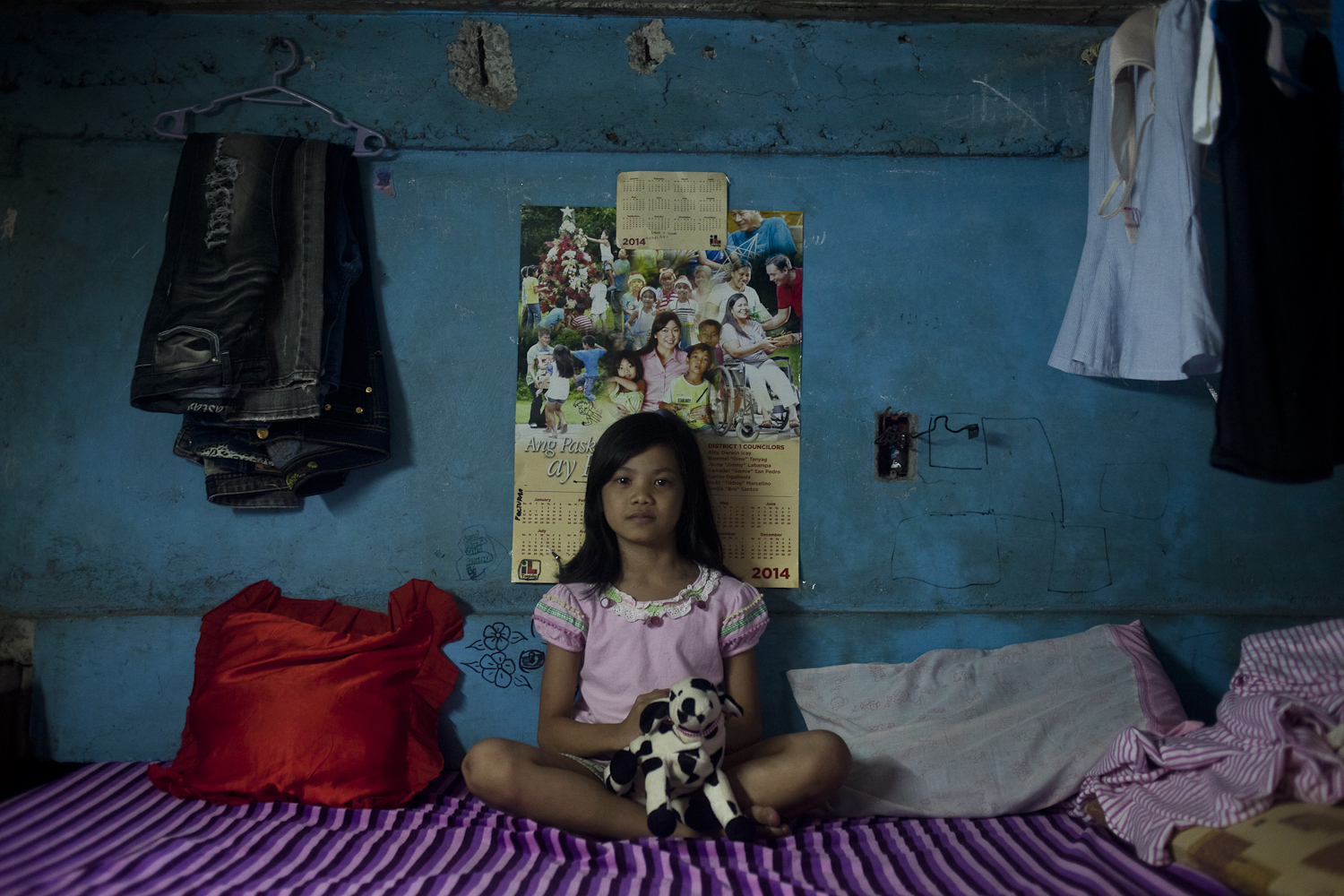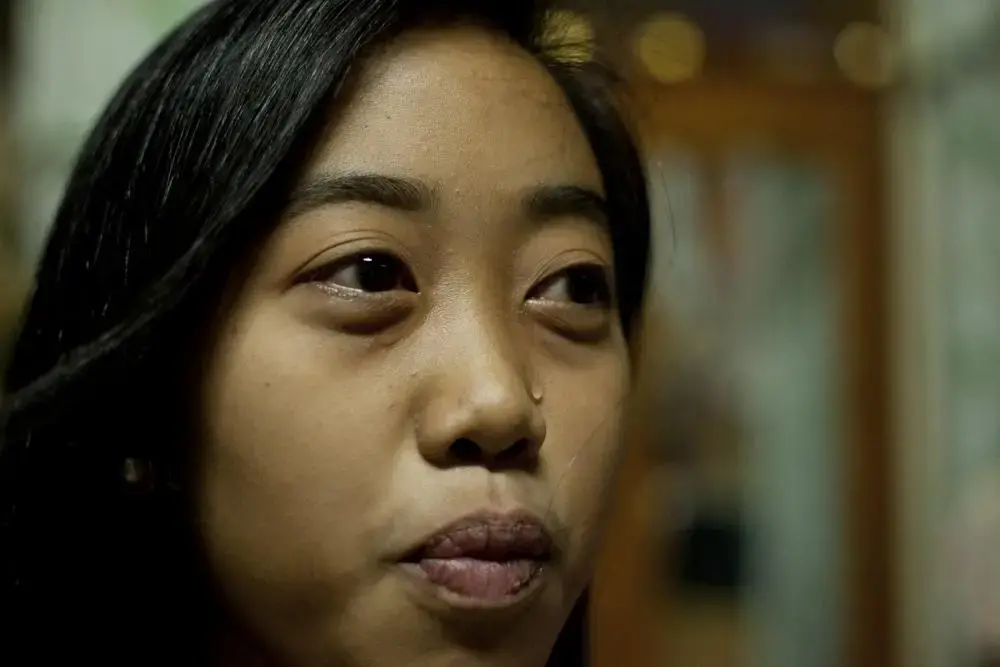(This is the second part of Ana Santos' photo essay on OFW women. Check the first part here.)
In the United Arab Emirates (UAE), having a Filipina nanny is considered a status symbol.
She is recognized for her caring, nurturing ways and natural love for children.
Some sociologists call this a transfer of affection or a caregiver's way of dealing with not being able to give her own children love and affection by rechanneling her attention to her ward.
An honorable profession
"When it comes to being a nanny or caregiver, the Filipina is the best in her class. She's the top of the line. It is an honorable profession. As a caregiver, she is entrusted with the most vulnerable in the home: the young and the elderly," said Ambassador Grace Princesa, Philippine Ambassador to the UAE.
The 2012 Commission on Filipinos Overseas (CFO) estimates show that there are more than 900,000 Filipinos in the UAE. More than 75% of them are temporary workers and around 22% are irregular migrants – those who are not properly documented, do not have valid residence or work permits, or who are overstaying.
"About 10% of Filipinos in the UAE are working as domestic workers or nannies," Princesa added.
Between mothers
When she opened it and saw the pictures of her two children, Joy and Jim, and her mother, she looked up at me and asked, "Sa akin na po ito?" (Are these mine now?) I gave Norma Brion the envelope, vaguely telling her I had brought her something from the Philippines.
"Opo. Dala po namin yan para sa 'yo." (Yes. We really brought those for you.)
In the 8 years that Norma Brion has been working as a nanny and domestic helper in Abu Dhabi, she has gone home to the Philippines to be with her children only twice.
"Nang iwan ko sila, ang liliit pa nila. Tignan mo na sila ngayon, ga-graduate na ng college si Joy," she said running her hand over the photos.
(When I left them, they were so small. Look at them now. Joy is about to graduate from college.)
At that point, I was no longer the journalist and Norma was no longer the respondent. We were just two mothers. (Read more about Norma and her children here)
Veiled stigma
"Nakatapos ako ng business wala naman opportunities sa Cotabato. Yun mga lalaki, lumalaban o nagtatanim. Yun mga babae wala. So naisipan ko mamasukan na lang sa Kuwait. Ni hindi ko nga alam kung ano o saan yun."
(I graduated with a business degree but there are no employment opportunities in Cotabato. The boys go off to fight or farm, but there is nothing there for the women. So I thought of looking for domestic work in Kuwait. I didn't even know where Kuwait is.)
"Hindi ko na naisipan mag-try mamasukan sa Manila. Sabi nila mas mahihirapan ako dun kasi masama tingin nila sa Muslim, mga terrorista daw," Farida said.
(I didn't even try to find domestic work in Manila. They told me it would be harder for me there because Muslims have a reputation for being terrorists.)
Statistics show that in the provinces of ARMM, Maguindanao and CAR, women migrants outnumber their male counterparts.
According to the Philippine Statistics Authority (PSA), for every 10 women who work abroad, there are 11 men.
However, gender distribution of OFWs is very different for SOCCSKARGEN, Cagayan Valley, ARMM and CAR (Cordillera Administrative Region). In these areas, from 2008-2010, for every 3-5 male OFWs, there were 10 female OFWs.
The Yaya Sisterhood
"I come from a family of 13. We're all named after famous Filipino celebrities," said Nida Velonza, laughing. "Me, I'm named after Nida Blanca."
When Nida first began working as a nanny in Dubai, she kept thinking about her sisters back in the Philippines who were struggling to make ends meet.
"My sister, Gloria and her husband, only had soup to eat because they had to give the meat to the kids. Mayra's husband did not work. Maricel got pregnant and her boyfriend left her. My other sister, Perla, was not married and did not have kids but she was working at a dead-end job in a factory."
Nida then decided to bring her sisters one by one starting with her Ate Mayra. Then, she and Mayra pooled funds together to bring Alma, then Gloria, then Perla and finally Maricel to Dubai.
Currently, there are 6 of them working in Dubai as nannies. At the time this photo was taken, one sister, Alma, was in the Philippines on holiday.
"There are a lot of people who look at us and are envious. When we get together at the park or attend community functions on our days off, we make it a point to come in the same color," giggled Mayra.
"When we call our parents every week, they ask to speak to us one by one and check attendance. We charge those who are absent AED 20!" said Perla, piping in.
"I'm happy – we're happy. My sisters and I have each other here to depend on and to go to. When we eventually go home to the Philippines, we might put together a small business like a grocery or something. We don't know yet but it will still be us sisters helping each other out. Like they say, blood is thicker than water," said Nida.
When wards become children
Nida Velonza's only son, Nicos, was 2 months old when she left him. "I was still breastfeeding him," she recalled.
She had been working as a nanny for many years at that time, but was hard-pressed to find economic opportunities in the Philippines. "There was nothing for me and my son there and my husband was of no help. I had to leave," she said.
Nida has been taking care of her ward, Alps, since he was 6 months old. Alps is now 6 years old and almost the same age as Nicos.
"Everything I could not do for Nicos, I do for Alps. I sometimes think I don't know my son. I don't what he favorite color is, what his favorite food is – the things I know about Alps. I love and care for someone else's child but can't be there for my own son."
Catching up
Socorro Magramo has a lot of catching up to do.
She spent 18 years in the monastery and has spent almost the same number of years taking care of other people's children.
"I'm 58 years old now. It's too late for me to have kids of my own because of my age," she smiled. "But I want to have a partner, in this lifetime if possible…maybe soon," she added, laughing good-naturedly.
"Now, all I want is reward myself for the long period of taking care of other people, other children, and helping my nieces and nephews finish their studies."
"Actually I have a boyfriend, we're in a long-distance relationship," said Socorro with a twinkle in her eye.

















